|
Wimbledon 2014 is shaping up to be one of the most wide open Grand Slams in recent memory. The women's draw is without a defending champion due to Marion Bartoli's retirement last summer, and all of the top men enter with serious questions surrounding their readiness for a deep run at the season's third major. This Wimbledon also marks the first time in two years that the Big Four of the ATP are seeded 1-4 at a Grand Slam. Yes, Murray benefits from a bump in the seedings, but it feels oh so right to see Nadal, Federer, Djokovic, and Murray drawn to meet in the semifinals. How fantastic would it be to see the men's draw play to its seedings and produce Djokovic-Murray and Nadal-Federer semifinals? Sadly, there are no marquee match-ups on the women's side for championship weekend, as Serena Williams and Maria Sharapova are slated to meet in the quarters for the second straight Slam.
It's difficult to make predictions with any certitude given how little grass court tennis is played these days. Nonetheless, let's take a look at some of the players who should capture most of the headlines over the two weeks at Wimbledon, and some of the reasons why it will be particularly difficult to predict what will happen: Serena Williams "I'm going to go home and work five times as hard to make sure I never lose again." - Serena after her second round loss to Garbine Muguruza at the 2014 French Open. When Serena talks like that, history tells us that we should take notice. We saw what role the pressure of history may have played on Nadal's psyche after his Australian Open loss in January. Who is to say his struggles on clay weren't due to knowing his body may have let a chance at history slip through his grasp. Serena will once more attempt to tie Martina and Chris on the all-time Slam list. Typically, we'd expect a resounding performance from Serena after a shock exit at a Slam, but will the weight of history add another dimension to her quest? Ultimately, Serena's serve will be the biggest deciding factor for her this fortnight; if she can find her rhythm, then her opponents will fall compliantly by the wayside. Rafael Nadal "Personally I feel that I am doing things better....I am able to move myself more free now. I’m not scared about my knee. That’s the most important thing for me." - Nadal during a pre-Wimbledon press conference. Rafael Nadal is one of the best grass court players of his generation. He's also coming off two early round exits at Wimbledon the last two seasons. His troublesome knees have been the biggest culprit for his woes, and so it's heartening to hear him speak so confidently about them this year. Still, he is badly in need of matches on the surface heading into this tournament, and has a few tricky opponents lurking in the early rounds. If he's able to make it into the second week and find his footing, he could make some noise. He is a five-time finalist and two-time champion, but we just don't know what to expect from him at the moment. Maria Sharapova "That's the moment that marked my career, at Wimbledon. I appreciate that moment so much. It came so unexpectedly, and yet 10 years later, to have five Grand Slams and still be playing and still have the passion to win more -- that brings a lot of joy. I want to get better. And I want even more." - Sharapova looking back on her career and first Slam title, 10 years ago this Wimbledon. Has it really been 10 years since Maria Sharapova dominated Serena Williams en route to a maiden Grand Slam title? Fresh off a second French Open title, and 5th Slam overall, Sharapova is undoubtedly one of the favourites. She has the desire, but she'll also need a bit of luck as she navigates the draw - a date with Serena looms in the quarters. Beating Serena on her way to winning the title would be a major feather in her cap, given her futility against the world number 1 over the last decade. Novak Djokovic "Right now I don't feel any pain. But I felt like when I'm changing surfaces, especially from clay to grass, in the opening few days of the practice here got a little bit of a strange sensation in the wrist." - Djokovic on the status of his nagging wrist injury. Novak Djokovic benefits from Wimbledon's seeding formula and gets the top seed despite being marginally behind Nadal in the official ATP rankings. Despite being consistently the best player in the world over the last 2 1/2 seasons, Djokovic has only two Aussie titles to show from the last 10 majors. During that time, he's also lost in five Slam finals. This spring, he's had to deal with a balky wrist, and enters Wimbledon on the heels of another loss to Nadal at Roland Garros. Even if his wrist co-operates, how much is he suffering mentally after so many close misses in recent times? This Wimbledon is where Boris Becker must earn his salary. Andy Murray “For me, it is not based on results...You cannot, as a coach, change anything in five or six days. It is silly to suggest otherwise." - Murray speaking about his new coach, Amelie Mauresmo. Andy Murray has had a rough go of it since his historic win at Wimbledon last year. A long absence due to injury and a high profile coaching switch have made more headlines than his play on court in the last 12 months. The British media have honed in on Amelie Mauresmo since Murray made the bold announcement of her hiring after the French Open. How much will this prove to be a distraction to Murray's yearly burden at Wimbledon. Having already won the title, he should feel less pressure this time around, but the spotlight remains squarely on him on home soil. Roger Federer “This year I feel all the options are there: return, serve, serve and volley, my backhand - everything is working to my liking. For that reason, I feel I'm a bit more relaxed mentally because I know it is there.” - Federer on the state of his game heading into Wimbledon. When Roger Federer crashed out of Wimbledon last year, the likelihood of another Slam title appeared slim. He believes his dip in play was mostly due to a nagging back injury that he carried through much of the 2013 season. His improved results this year seem to back that up, as the Swiss maestro made the semis in Australia and has already won two tournaments in 2014. His confidence ahead of this Wimbledon is warranted, as this may be his best remaining shot at capturing an 18th Slam title. Let's all focus our energies to make another Federer-Nadal Wimbledon classic happen in the semifinals; this might be the last time we are treated to their rivalry on this stage. Victoria Azarenka “I wanted to have a competitive match. I wanted to test myself, to play for a long time, see how my body is going to react. I’m pretty pleased with what happened. Obviously the result is the result but that’s a beginning. It’s a starting point. There are a lot of positive things that I can take from today.” - Azarenka speaking after her first match since the Australian Open. I doubt anybody expects Victoria Azarenka to hold the Venus Rosewater trophy in two weeks. Even a quarter-final showing should be considered a major victory given Vika has been absent from the WTA tour since the Australian Open. The tour has missed her presence dearly. After winning the Australian Open twice and pushing Serena at the U.S. Open last fall, she put her hand up as the world number one's chief rival. Her injury thwarted her momentum towards the WTA's first true top rivalry since Justine Henin's retirement. Hopefully, she is able to complete this Wimbledon on her own terms and regain her standing by year's end. Madison Keys "I have always loved grass. To win my first title on grass is just an amazing experience. Hopefully there will be many more to come." - Madison Keys after winning her first career WTA title two days before the start of Wimbledon. American tennis has been searching for an heir apparent to Serena's throne for many years. After the riches of the 90s, U.S. tennis has offered little outside of the Williams sisters since Lindsay Davenport's retirement. Sloane Stephens stalled after a semifinal showing in Australia last year, unable to translate solid Slam results into success at smaller events. Now, Madison Keys appears ready to make a name for herself, capturing the AEGON International yesterday for her first WTA title. Keys utilized her trademark big serve to win the Wimbledon lead-up event and instantly catapult herself to dark horse status at the All England Club. 10 More To Keep An Eye On: Eugenie Bouchard The Canadian wonder is the only WTA player to reach the semifinals of the first two majors in 2014. Taylor Townsend Has elevated her profile in rapid fashion over the last two months. Looking to build on 3rd round showing in Paris. Dustin Brown Blitzed Nadal in Halle and utilizes every shot imaginable. So much more than his hair. Grigor Dimitrov Three titles on the year and seems to be inching closer to a major breakthrough, a first round loss at the French notwithstanding. Milos Raonic Very solid year and, like Dimitrov, seems destined for something big sooner rather than later. Detractors point to Milos having never made it past the second round at Wimbledon, but does that mean anything given the small sample size? Venus Williams If she can win in Dubai, then why not another magical run at Wimbledon? Could there be any better story at fortnight's end than another Slam title for Vee? Ana Ivanovic Her results this year (3 titles from 4 finals) point to a resurgence and status as legitimate contender at Wimbledon. She has to make another deep run at a Slam, right? Feliciano Lopez Given Nadal's recent woes on grass, Lopez may be Spain's best bet for a deep run at Wimbledon. Thrice he's made the quarters and enters having won the warm-up AEGON International for a second straight year. Sabine Lisicki Last year's finalist gets the nod to open Centre Court play on Tuesday, a spot traditionally designated for the defending Ladies champion. With Marion Bartoli's retirement, Lisicki will get the spotlight on her best surface. Wimbledon is her favourite tournament, and this is her yearly two weeks to make any noise on the WTA.
0 Comments
Wimbledon is upon us once more. Last year's hero and men's champion, Andy Murray, is back to defend his title - the first by a British man in 77 years. The media focus will again be on Murray this year, this time due to his hiring of Amelie Mauresmo as coach after he and Ivan Lendl parted ways earlier in 2014. Murray undertook a rather long coaching search before arriving at Mauresmo, even playing a few tournaments in the spring on his own while he considered his options. Mauresmo's hiring has deep significance: one of the superstars of the ATP Tour, a two-time Slam champion and Olympic gold medallist, is showing the sporting world he believes a woman can take his game to another level. Murray has been very attuned to saying the right things, which leads me to believe that his positions are not just for public appearances, but a reflection of a serious respect for female athletes and women in general. By choosing Mauresmo, Murray has shunned the sexist discourse surrounding women's tennis and a commonly held belief that the women's product is inferior to the men's. He believes that Mauresmo, a female tennis player, has a skill set from which he can borrow to improve his own game. Unsurprisingly, when news broke of Murray hiring a woman as his next coach, there was no shortage of negative opinions. One ATP player who did not shy away from opining was Marinko Matosevic: For me, I couldn't do it since I don't think that highly of the women's game. It's all equal rights these days. Got to be politically correct. So, yeah, someone's got to give it a go. It won't be me. Matosevic's comments came on the heels of Ernests Gulbis offering his opinions on whether he wanted his younger sisters to become tennis players. It’s a tough choice of life. A woman needs to enjoy life a little bit more. Needs to think about family, needs to think about kids. What kids you can think about until age of 27 if you’re playing professional tennis. That’s tough for a woman, I think. Matosevic and Gulbis are emblematic of a sporting and tennis culture that often demeans women and devalues their athletic contributions in favour of casting them as sexual and domestic objects. The most troubling trend with the likes of Gulbis and Matosevic is that fans and journalists tend to cast them as eccentric and funny, not to be taken seriously. But, it goes much further than that; their words are dangerous and have real effects on female athletes who must still fight to be taken seriously. It is against that backdrop that we must consider Murray's decision to hire a female coach. I suppose, if a tennis player were to take this bold step, it makes sense that it was Andy Murray. He is not cut from the same cloth as Gulbis and Matosevic. His mother, Judy Murray, is one of the most high profile coaches in tennis, and one of its most popular and engaging personalities. She openly fawns over Feliciano Lopez, who she refers to cheekily as "Deliciano", and gladly congratulated Rafael Nadal on his 9th French Open title, even after beating her son in the semifinal.
It's evident Judy Murray has succeeded, as Billie Jean King astutely pointed out, in raising a sensitive and well adjusted young man. He does not adhere to gender roles, perhaps due to his mother's strong influence in his tennis career. Some men might want to distance themselves from a mother with such a strong personality and presence in the tennis world, but Murray seems to welcome it.
To be clear, Mauresmo is a qualified coach, guiding Marion Bartoli to Wimbledon glory last year. This is not a case of tokenism; Amelie is a two-time Grand Slam champion and former world #1. But, she was still a controversial choice. Yet, the Murrays did not shy away from the media scrutiny they knew would accompany the Frenchwoman's hiring. I understand those who say Murray shouldn't be congratulated for doing something like this, but who are the other men hiring women as coaches on the ATP? Ultimately, this is likely to be a thankless job for Mauresmo: despite what Murray says, she will take more blame for their woes together than praise for his successes. While this is a landmark moment in tennis and sport, there is also the fear that, should their pairing not work out, Mauresmo may become a cautionary tale of women not being suited to coaching male athletes. This is the burden of the trailblazer - bearing the brunt of opposition before reaping the credit years down the road. Yet, for progress to take hold and change to be effected, someone has to make the first, bold steps into the unknown. The Murray-Mauresmo partnership, or Murresmo as it is now affectionately called, will not revolutionize tennis overnight. But, as we say in Jamaica, "every mikkle mek a mukkle" - which is to say, every little bit counts. This is a proud moment for tennis. My hope is that these two can survive the intense media scrutiny in Britain during Wimbledon and build something truly special going forward. This pairing may not last forever, but it is a very important first hiring of a woman to shepherd a top ATP player's career. May their relationship be a successful one, and silence the sometimes latent, often blatant, sexism and misogyny in professional sport.
Rafael Nadal is now a nine-time champion at Roland Garros. No other man has won a Grand Slam that many times. But for one day in 2009, Nadal would be gunning for an 11th consecutive title next year in Paris. His win tied Pete Sampras for joint second (14) on the all-time list of most Grand Slam titles, and marked the tenth consecutive season in which he's showered himself in Grand Slam glory. In short, yesterday's win was historic. It must have been the awareness of that history that made the moment that much more emotional for Nadal; he cried like he's never done before on a tennis court. After coming so close in Australia, only to have his body betray him, Nadal looked like a man who had just shed a weight that us mere mortals will never know.
The 42nd meeting between Nadal and Djokovic had all the makings of another classic. What we got, instead, was a bizarre match with neither player at his best. Djokovic claimed the first set 6-3, but at no point afterwards did he look assured of winning the match. His play was uncertain and laden with uncharacteristic errors. Even his trademark return game was a shadow of its usual self, as Nadal won 50% of his 2nd serve points compared to 36% for Djokovic. This was not the man who most pundits, with good reason, picked to hoist the trophy at tournament's end. Yet, even though Djokovic was clearly not at his optimum level yesterday, he still found himself one service game away from a second set tie-break and a chance at a two sets to love lead. The second set was where the match was won/lost. At the time, I thought Nadal had to pull even in order to have a chance at winning, but it turned out to be Djokovic who had to take a 2-0 lead. While he looked subdued, we had no idea how much he would struggle physically in the third set and beyond. His typically frugal ground game gifted Nadal an unusual number of unforced errors. Even when he attempted to serve and volley more, he missed easy volleys that gave Nadal more breathing room. This was most glaring when Djokovic dumped a backhand volley into the net to lose the second set.
Djokovic is undeniably one of the best ever, but seems destined to remain in the shadows of Nadal and Federer. Most troubling for Novak is a trend of being unable to bring his best to Nadal in the biggest matches. Yes, he was let down by his body in this match, but there is now an undeniable mental component to his inability to beat Nadal on the biggest stages. This was the third straight and sixth overall loss to Nadal at Roland Garros, this after looking in complete control during their last four ATP matches. Consider too that Djokovic was unable to win the 2013 U.S. Open final, another match in which he was favoured, and we're beginning to see a pattern.
Rafael Nadal is the "King of Clay". Losing yesterday's match would not have changed that. But, Nadal still had everything to play for. The 2014 season has not been kind to Rafa, in spite of reaching the Australian Open final and winning three tournaments. His expected bulldozing of the clay season did not happen. He suffered losses to Almagro, Ferrer, and Djokovic on clay, and he carried the weight of the disappointment in Australia with him. Whereas in previous seasons Nadal arrived in Paris the prohibitive favourite, his baggage was much heavier in 2014. Moreover, tennis fans saw a different Rafa this spring, more reflective and willing to indulge his existential sensibilities in press conferences; he did not equivocate when confronted about his dip in form. Yet, even with all his struggles, Nadal appeared committed to the hard work he knew he had to do in order to defend in Paris.
The French Open was always his end goal. We will never know how much the tournament means to Nadal. We think of Rafa as a mythical creature whose unprecedented reign on the red dirt is taken for granted. The truth is, fans will never know any of what it takes to be Rafael Nadal, and so it was hard for them to understand why their saviour was suddenly so vulnerable, having to fight himself, his body, and his mind. The weight of expectations - coupled with the physical and emotional toll of this most difficult season - was on full display after Djokovic double faulted on match point.
Rafa wept. All that Nadal kept close to his chest for the last few months came gushing out on Philippe Chatrier. He cried like we have never seen before. Once he grabbed hold of the Coupe des Mousquetaires and the Spanish national anthem started playing, Nadal was overcome. Those were not just happy tears, they were relieved tears - the relief of knowing that all the hard work paid off. We expect our warriors to be steely and brave in battle. We must also admire them for embracing emotion and not being afraid for us to see them cry. For as much as we are invested in tennis players as fans, they are the ones who feel the highs and lows of victory and defeat most intensely. Nadal and Djokovic showed us just how much they both care on that podium. If we take one thing away from this French Open, it should be to never underestimate the will of Rafael Nadal Parera. The King leaves Paris with his number one ranking intact and assured of at least one more year on the French throne.
Rafael Nadal and Novak Djokovic will play for the French Open title on Sunday. So much has been building up to this moment, from both players, that this - their sixth meeting in Paris - felt inevitable. They have been the two best players in men's tennis for so long that we have now come to expect this final pairing. Yet, their respective paths to Roland Garros could not have been more different; Nadal suffered three clay losses and looked vulnerable on the surface for the first time in his career, whereas Djokovic has been unstoppable since Wawrinka thwarted him in Australia. Their divergent paths have shifted course toward a more equal footing. While Novak might have entered the French Open as favourite, Nadal had been inching his way back to peak form in preparation for this moment.
Rafael Nadal is 34-6 in 2014. Pretty darn good, right? Except three of those losses were on clay, at tournaments and against opponents he has dominated in the past. More troubling was the lack of confidence and accompanying tentativeness Nadal displayed during those tournaments, even while winning matches. One theory for his dip in play is that his loss to Stan Wawrinka in the Australian Open final - which he was heavily favoured to win, but was betrayed by his body - crushed his spirit so badly that he was unable to mentally recover. Couple his shoddy spring play with two losses at the hands of Djokovic (Miami and Rome), and Nadal entered Roland Garros with serious questions about his chances for a ninth title. Meanwhile, Djokovic roared into Paris as the odds makers favourite for the first time in his career. Since Djokovic came of age at the 2010 U.S Open, he's had extended periods of dominance on the ATP Tour. He won three of four Slams in 2011, and has more Slams (5) than anybody else since that time. Yet, if we liken tennis to boxing, he has been unable to crown himself the undisputed world champion. Each time he arrived at the cusp, Roland Garros knocked him back a peg or two, never able to deliver the decisive blow against Nadal on the Spaniard's favourite stage. The French Open is Novak's Achilles' heel, and Rafael Nadal has inflicted most of his pain in Paris. Roland Garros is the only Slam at which Djokovic has failed to score at least one win against Nadal. He's beaten Rafa at Masters events on red dirt, but the Spaniard has staved off all challenges from Novak in Paris. If we omit the five matches they have played at the French Open, Djokovic leads the overall head-to-head 19-17. Their battles at Roland Garros are the difference in their rivalry; it's the one glaring hole in Nole's resume, and the tournament has morphed into a bugaboo of sorts for the world number 2. He is superb on clay, having been in position to win, but has failed year after year. Between Wimbledon 2011 and Roland Garros 2012, Nadal and Djokovic played four straight Slam finals. Novak won the first three, including a soul crushing Australian final that set all kinds of records. All eyes were then cast toward Paris - another Nole win might have broken Rafa mentally and cleared the way for Djokovic to unleash a Federer-esque reign over men's tennis. That did not happen. After an injury layoff, Nadal was able to produce one of his best seasons in 2013. The French Open has been Nadal's line in the sand: whenever a Djokovic takeover has felt unstoppable, Rafa has always been able to halt his surge on Philippe Chatrier. There is palpable tension atop men's tennis, a feeling that something has to give with these two. Novak is again in position to topple the King of Clay. Should he win that elusive title on Sunday, he will also leave Paris with the number one ranking. Djokovic came desperately close to beating Nadal in last year's semifinal, and so close to completing his career Grand Slam. How much of the last year was spent preparing for this moment? We are also aware of Rafa's special relationship with this tournament. He has won it eight times, and if not for 2009, might have been going for a 10th straight win this weekend. His dominance at Roland Garros is unlike anything we have ever seen. Make no mistake, both men are acutely aware of what is at stake for the other come Sunday. So few tennis players know what it feels like to achieve as they have, and this final is another chance to add to their legacies. The French Open is Nadal's dominion; Djokovic has been able to best him on other courts around the world, but Philippe Chatrier is exclusively Rafa's. Until Djokovic can beat Nadal on clay, on Philippe Chatrier, best-of-five sets, Djokovic and his fans will continue to feel the weight of that unfinished business. With each successive year that Nadal wins and Djokovic does not, both men feel the added pressure of winning and losing. Rafa and Novak should be at their best on Sunday. Nadal's game appears to be in full flow once more, and Djokovic has been largely untested thus far. What seemed like an inevitable coronation for Djokovic pre-tournament has been curtailed by Nadal's inspired play these last 12 days. The pomp has returned to his game; his groundstrokes have more purpose and his movement more fluidity. All that has happened since Australia has readied us for this moment. There will be lucky bounces and moments of misfortune. There will be blistering groundstrokes, impossible angles and oxygen sapping rallies. Most of all, this will be another banner event for men's tennis. Nadal-Djokovic may just be the greatest show in sports. |
ARCHIVES
September 2022
|
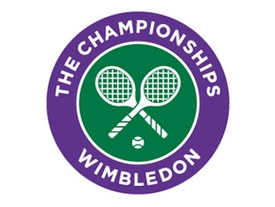
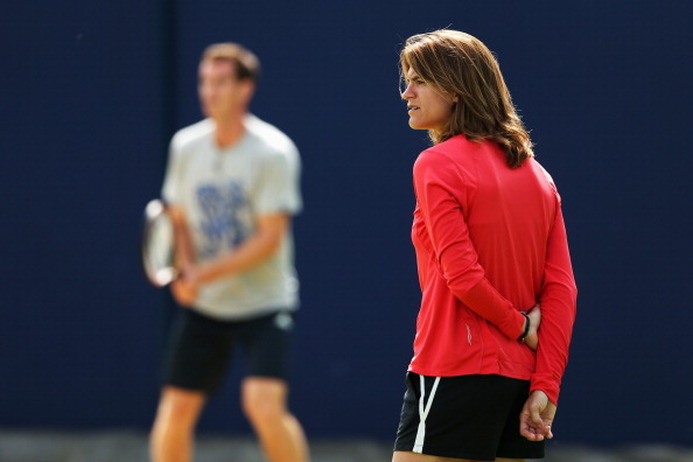
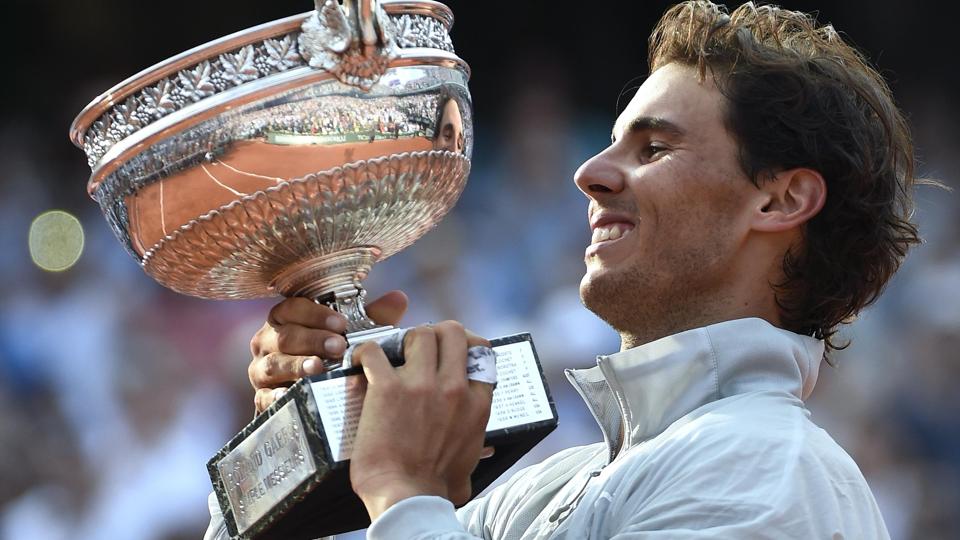

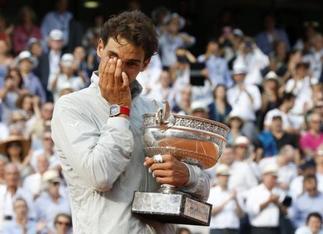
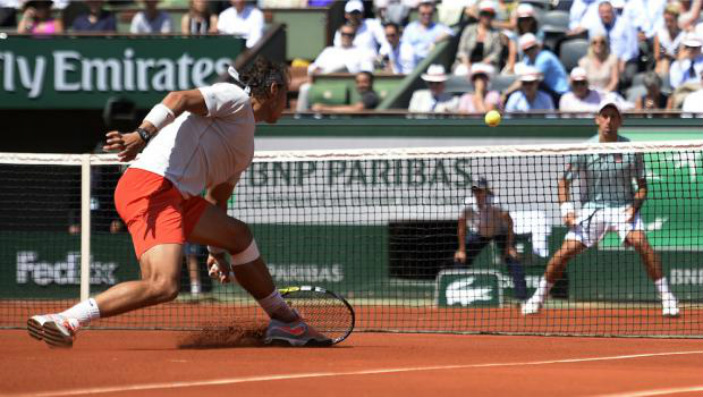
 RSS Feed
RSS Feed